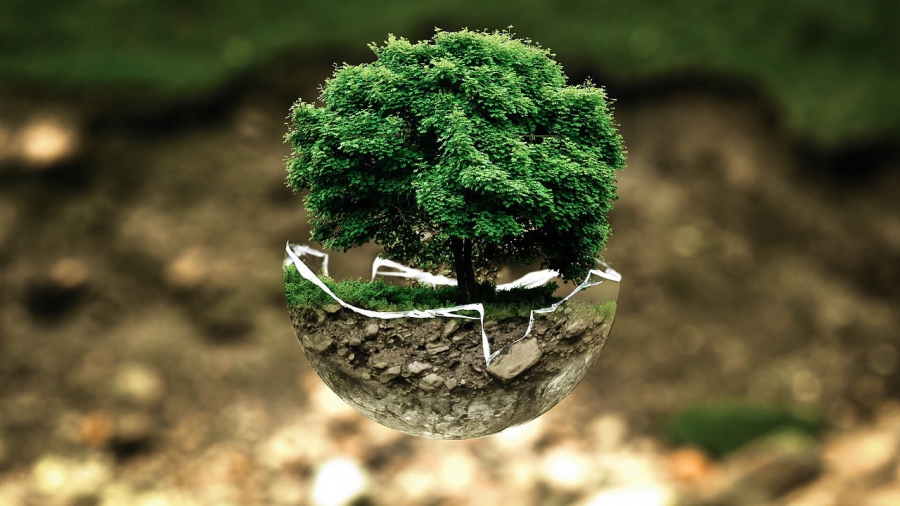Besides adding to greenhouse gas emissions and contributing to climate change, animal agriculture pollutes our air, land and water. We would all breathe easier, the planet included, if each of us made the choice to eat vegetarian.
Climate change
Estimates of the percent of human-caused greenhouse gas emissions due to our consumption of animal products range from 14.5% to as high as 51%. Clearly, animal agriculture is among the most significant contributors to the crisis of climate change we face today, with all the catastrophe it portends from extreme weather patterns to submerged coastal habitats.
Air pollution
Factory farms, which concentrate tens of thousands of animals in a small space, generate large and putrid lakes of manure, often called lagoons. This fecal waste releases dozens of noxious gases, including nitrous oxide, ammonia and hydrogen sulfide, as well as airborne particulate matter harmful to our lungs, rendering nearby areas uninhabitable.
Water use
The production of meat, in particular for the irrigation of feed crops, constitutes more than half of all freshwater use in the United States, severely depleting our aquifers. In contrast, all our personal use of water — including taking showers, washing cars and watering lawns — consumes only about one-tenth as much water as animal agriculture.
Water pollution
The meat industry produces vast quantities of phosphorus and nitrogen-rich waste, the disposal of which impacts the quality of water in our lakes, streams, bays and estuaries. Besides polluting our drinking water, waste lagoon breaches and factory farm runoffs have left billions of fish dead in our waterways.
Land use
Nearly one-third of all the landmass on earth is used for raising animals for our consumption—for grazing and to grow feed crops. This includes almost half the landmass of the lower 48 states in the US. Not surprisingly, animal agriculture is the leading cause of wildlife habitat destruction in the world.
Deforestation
The Amazon rainforest, one of our world’s greatest natural resources, houses over 10% of the biodiversity on earth with countless species of mammals, birds, reptiles and amphibians. Since 1970, the vast majority of the deforestation in the Amazon has been due to cattle ranching—it is for our animal-centric diets that we are losing our rainforests.
The oceans
As a consequence of our consumption of fish, the vast majority of fisheries in our oceans today are either already depleted or are being harvested above the level believed to be sustainable in the long term. The biodiversity of sea life is being further eroded by the massive dead zones we create in our oceans from animal agriculture runoffs.
Species extinction
Tens of thousands of species are going extinct each year due to the climate change and habitat loss brought about by the voracious needs of animal agriculture, especially ranching. Today, diets rich in meat are the greatest threat to the diversity of our world’s flora and fauna and the ecosystems on which they depend.
We can save our planet
Choosing a plant-based diet is among the most impactful ways for an individual to help stop the depletion of our earth’s natural resources and reduce the environmental footprint of our species. It is better for the animals and better for our health too. Let’s eat more plant-based meals and help save our planet!S
For the Animals
Animals who live and die on our factory farms are as capable of pleasure, pain, joy and suffering as the companion animals we share our homes with. Each time we eat, three times a day, we can choose kindness over cruelty.L
Original article from The Humane League



Add a Comment